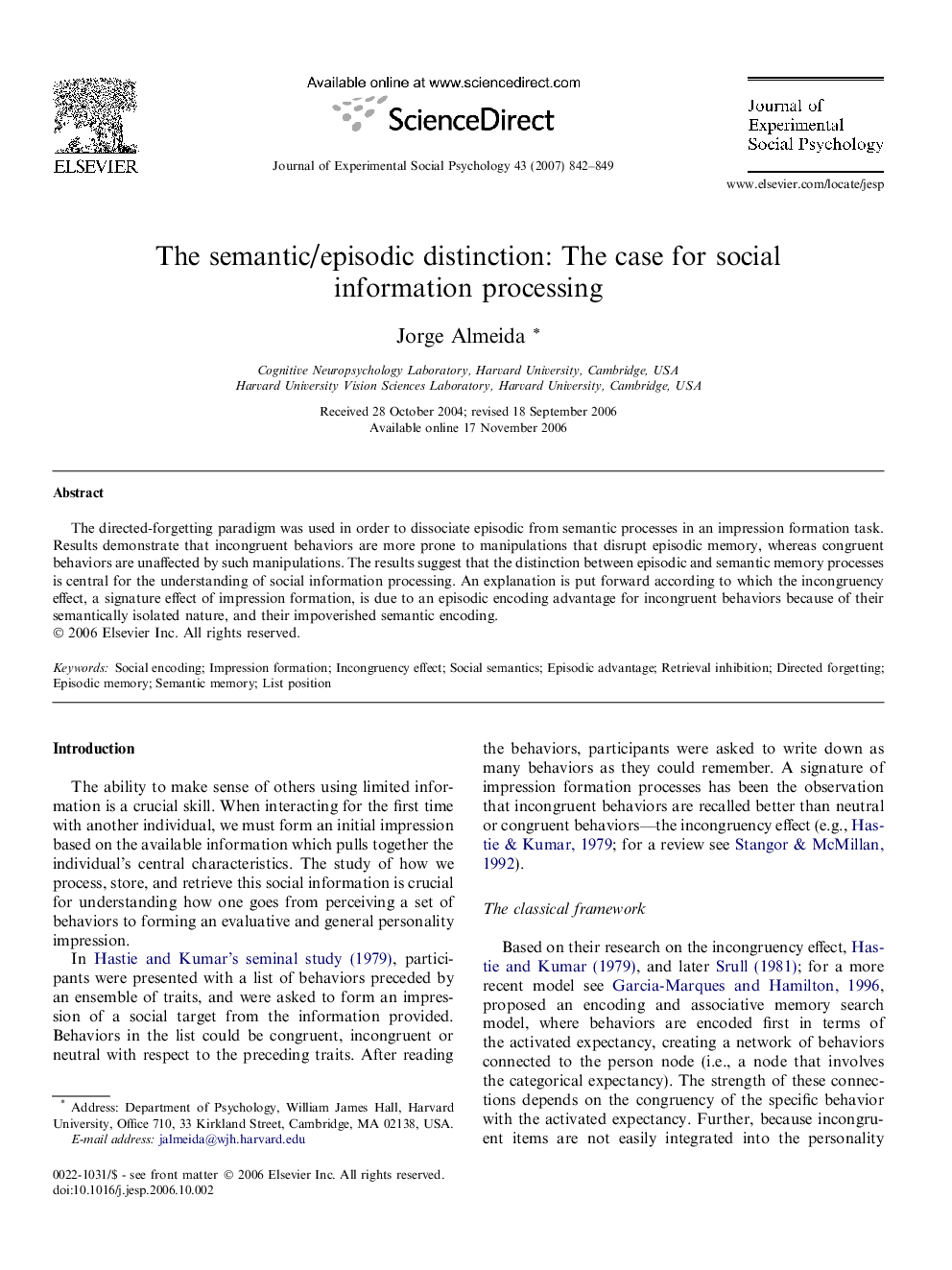| Article ID | Journal | Published Year | Pages | File Type |
|---|---|---|---|---|
| 948592 | Journal of Experimental Social Psychology | 2007 | 8 Pages |
Abstract
The directed-forgetting paradigm was used in order to dissociate episodic from semantic processes in an impression formation task. Results demonstrate that incongruent behaviors are more prone to manipulations that disrupt episodic memory, whereas congruent behaviors are unaffected by such manipulations. The results suggest that the distinction between episodic and semantic memory processes is central for the understanding of social information processing. An explanation is put forward according to which the incongruency effect, a signature effect of impression formation, is due to an episodic encoding advantage for incongruent behaviors because of their semantically isolated nature, and their impoverished semantic encoding.
Related Topics
Life Sciences
Neuroscience
Behavioral Neuroscience
Authors
Jorge Almeida,
